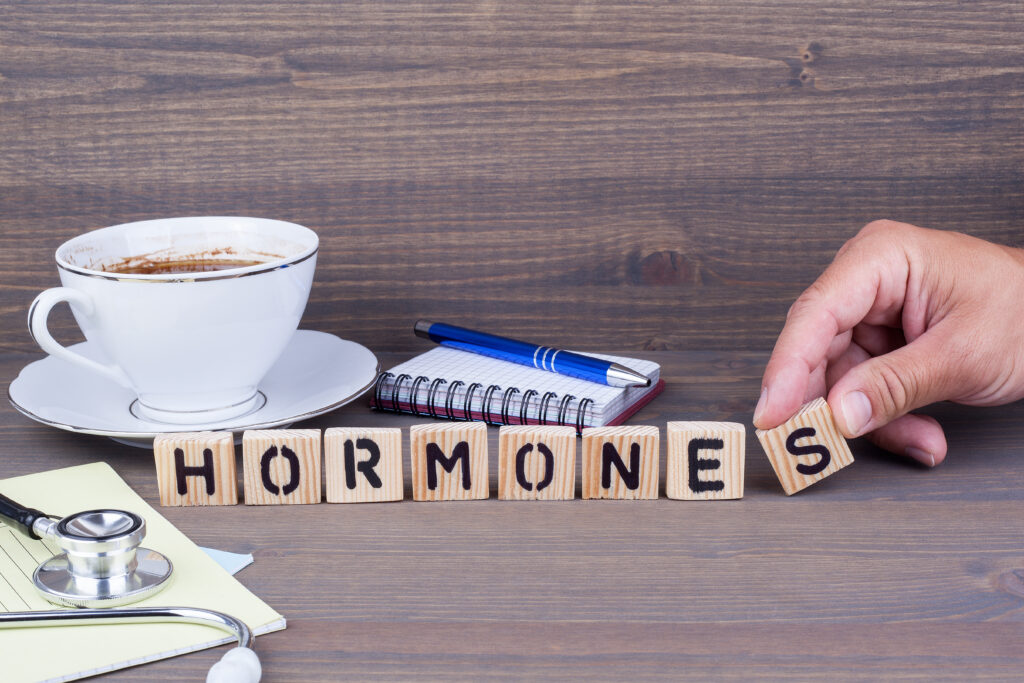As people get older, our bodies change, particularly after we reach milestone ages like 50. When you’re younger, it’s easier to recover from injuries and deal with health problems, but as we age, it can get harder to stay healthy.
At Echelon Health, we understand the importance of being aware of the changes your body will go through as you reach 50. Here are some of the most common health problems people over the age of 50 need to know about.
Common Heart Problems After 50
After 50, some minor health problems, such as dull aches or pains that you could previously ignore, might become more of an issue. Many of these issues involve your heart. Heart problems become more serious as we get older, as the heart is a muscle, and it weakens with age. Also, arteries can harden as we get older, making it harder for our bodies to regulate the flow of blood.
Thankfully, most of these issues are treatable and can be managed with a healthy diet and active lifestyle. These are some of the most common problems with your heart that you might experience.
Hypertension
Commonly known as high blood pressure, hypertension is a particularly dangerous issue as you get older. Blood pressure is the force of your blood as it travels around your body through the arteries to and from the heart. The higher your blood pressure, the more work your heart has to put in to get the blood pumping around the body, which can put a strain on your heart and other organs.
Common symptoms of hypertension include:
- Headaches and dizziness
- Breathing issues such as shortness of breath
- Chest tightening or pain
- Nose bleeds
As you get older, you can be at a greater risk of hypertension, as the elastic tissue in the blood vessels reduces over time, making them stiffer. The result is higher blood pressure, which means that people over 50 can be at greater risk of heart issues such as heart attacks.
Coronary Artery Disease
Coronary Artery Disease, or CAD, is a condition where plaque builds up in the arteries around the heart, making it narrower or blocking it entirely so that blood can’t flow through it. The problem can be an ongoing issue (stable ischemic heart disease), where your blood vessels gradually become narrower over time, or a sudden medical emergency (acute coronary syndrome), where the blood flow is blocked, and a heart attack ensues.
Some of the symptoms of CAD are:
- Chest pains or acute angina
- Persistently high blood pressure
- Dizziness or nausea
- Pain in the arms or shoulders
- Tightness in the chest
- Cold sweats
- Shortness of breath
As you get older, CAD becomes more of a risk as your blood vessels slacken and become more susceptible to plaque build-up. While stable ischemic heart disease can be lived with if managed correctly, both types of CAD can lead to serious issues such as heart attacks, which can potentially be fatal.
Obesity After 50
Obesity is a serious condition that affects 28% of UK adults. Obesity is defined as being severely overweight and can be a life-altering and long-term problem if not dealt with proactively.
As you get older, your body might slow down, and you may struggle to exercise as you did when you were younger. If you don’t adjust your diet to suit this more sedate lifestyle, then you might find that you gain weight quickly, putting you at risk of becoming obese. Your metabolism will also slow down as you age, as your body loses muscle mass. As a result, you’ll find it harder to burn calories and might find that you gain weight faster than you did in your youth.
Obesity is defined as anyone with a body mass index or BMI of 30 or over. Anything over 40 is classed as severely obese. If you don’t work with your doctor to lose weight and keep it off, then this can lead to serious health complications and make treating existing health conditions harder, potentially reducing your life expectancy.
Arthritis After 50
Arthritis is a common condition that causes inflammation and pain in the joints. It’s commonly found in the hands, wrists and knees, but there are many types of arthritis. Arthritis is common as you get older because your bones become weaker and more prone to damage.
Symptoms of arthritis include:
- Joint pain and stiffness
- Inflammation of the joints and soreness
- Red skin around joints
- Restricted movements
- Weakness and loss of muscle mass
Arthritis can lead to immobility and other issues surrounding that and is often particularly prevalent in older people.
Stroke After 50
A stroke happens when the blood supply to the brain is restricted, which kills brain cells and can result in catastrophic loss of bodily and brain function.
Symptoms of a stroke include:
- Facial paralysis
- Weakness in the arms
- Slurred speech
As we age, our blood vessels constrict, which can lead to an increased risk of a stroke. The quicker a stroke is caught, the less damage it can potentially do, so make sure you learn the signs and be vigilant.
Gout After 50
A form of arthritis, gout occurs when excess uric acid crystallises around the joints. While it can affect anyone at any age, it often occurs after 50 because of inactivity and other health factors.
Symptoms of gout include:
- Sharp pain in the joints, particularly the big toe
- Inability to touch an inflamed joint
- Swelling around the joint
- Itchy or flaky skin
Gout can lead to immobility and be incredibly painful. It is often known as a ‘king’s disease’, as it is often caused by lifestyle factors such as eating red meat, but many people have a genetic propensity to gout.
Alzheimer’s Disease After 50
Alzheimer’s disease is a progressive neurocognitive disorder and one of the most common forms of dementia. This disease often occurs as we age and is prevalent in the over 50s.
Alzheimer’s symptoms include:
- Increased memory loss and confusion
- Issues with organising thoughts and memories
- Issues with thinking logically
- Reduced attention span
- An inability to learn something new
- Difficulties with communicating and reading
- Trouble dealing with new situations
Alzheimer’s disease can sometimes be mistaken for signs of old age, as the memory does naturally lapse as we get older.
Colon and Rectal Cancer After 50
Cancer is an abnormal growth of cells that can be found throughout the body and can spread to other areas. Colon and rectal cancer is a cancer of the bowel and anus.
Symptoms include:
- Diarrhoea or changes in your stool
- Blood in your stool
- Stomach pains
Colon cancer can be devastating and spread to other parts of the body, but if treated promptly, it can be managed or eliminated, so you need to be proactive if you notice any symptoms.
How can you reduce your risk?
Many of these conditions that occur as you get older can be managed or avoided by making small changes to your lifestyle. Some practices to consider include:
- Eating a healthy, balanced diet
- Being as active as you can
- Quitting smoking
- Reducing your alcohol intake
- Monitor your blood pressure
- Attend regular health screenings
For more information, please read our article on 5 ways to stay healthy after 40.
Health screenings at Echelon Health
One of the best ways you can reduce your risk of health problems after 50 is to be aware of your body and your general health. At Echelon Health, we offer health screenings to help individuals to monitor their general wellbeing and identify any minor problems before they become major health issues.
Getting a regular health assessment can be a great way to keep tabs on your health, particularly as you get older. Our healthcare professionals have extensive experience working with a wide range of patients and specialise in the over 50s. So, they understand the health issues you face and can tailor your screening to suit your unique needs.
Our unique combination of the best imaging technology through CT, MRI and Ultrasound scans and fully comprehensive blood tests (over 40 parameters including cancer markers) allows us to detect up to 92% and 95% of preventable causes of death among men and women and visualise abnormalities as small as 2mm.
The Platinum Assessment that we offer to our clients looks at your body head to toe and leaves no stone unturned. It can detect the diseases mentioned in this article and more – check out our body map to learn what other diseases we can detect. The following tests and scans are included in the Platinum Assessment:
- Blood Tests
- ECG
- CT Aorta
- CT Heart
- CT Coronary Angiogram
- CT Chest
- CT Pelvis
- CT Virtual Colonoscopy
- CT Bone Density
- EOS
- CT Upright Skeleton
- MRI Brain
- MRI Cerebral Artery Angiogram
- MRI Carotid Artery Angiogram
- MRI Prostate
- Ultrasound Thyroid
- Ultrasound Testes/Ovaries
- Digital Mammogram
- Full Body Mole Screen
From brain MRIs to CT scans, we can help you to keep track of your health and reduce your risk of a illness becoming a problem unexpectedly. Learn more about our health screening prices and packages, or contact us to find out more.
Sources
https://www.webmd.com/healthy-aging/ss/slideshow-sudden-problems-after-50
https://www.eatthis.com/news-unexpected-health-problems-after-50-experts/
https://www.who.int/health-topics/hypertension#tab=tab_1
https://www.prevention.com/health/a20503072/health-conditions-you-get-in-your-50s/
https://my.clevelandclinic.org/health/diseases/16898-coronary-artery-disease
https://www.nhs.uk/conditions/obesity/
https://www.nhs.uk/conditions/arthritis/
https://www.stroke.org.uk/what-is-stroke/what-are-the-symptoms-of-stroke
https://healthtalk.org/gout/gout-age-and-experience
https://www.mayoclinic.org/diseases-conditions/alzheimers-disease/symptoms-causes/syc-20350447



